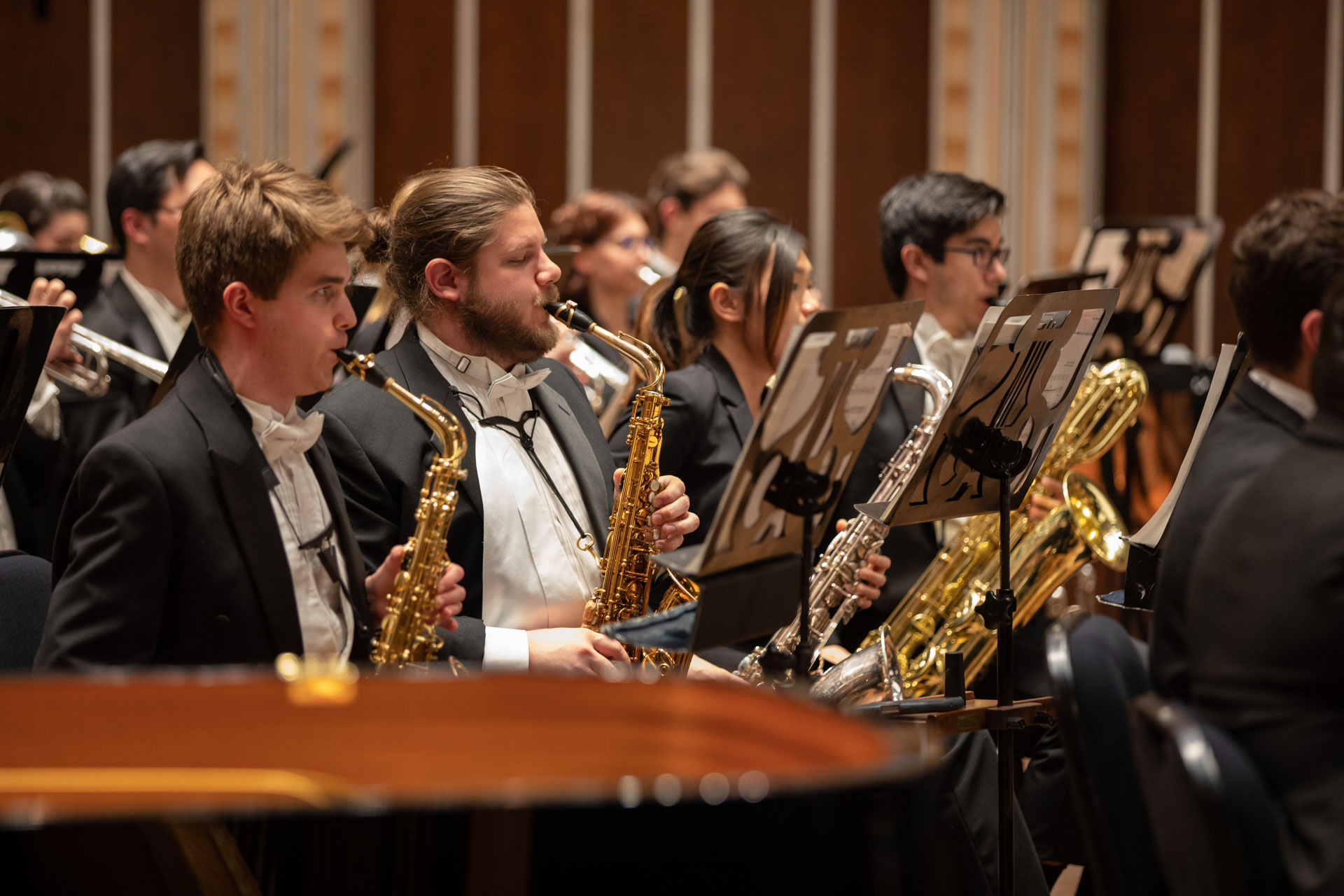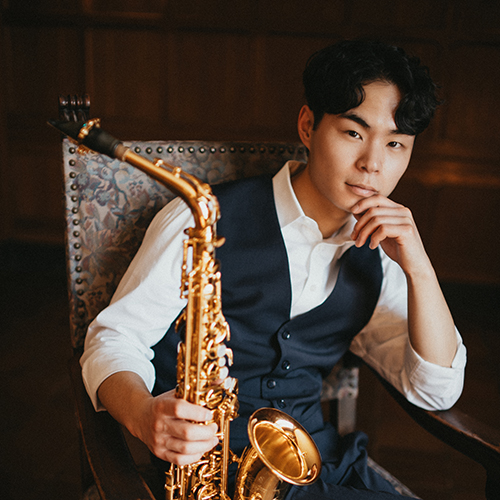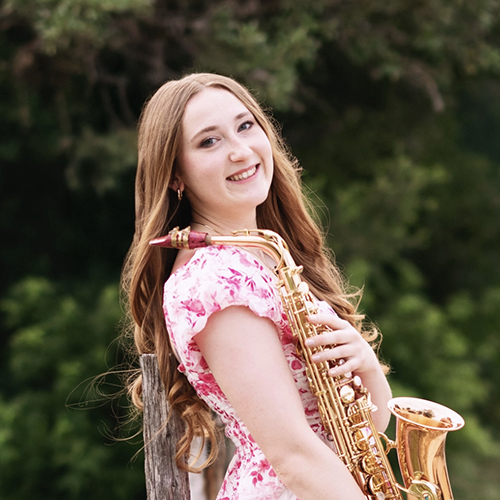The performance curriculum for saxophone studies at Eastman generally involves the following four facets:
LESSONS
Undergraduate Level
It is expected that every saxophone student at Eastman develops into a superior practitioner of the instrument. As the basis for all instrumental studies, lessons are the primary focus of every member to the studio. A system of “chops building” is implemented during first year, which includes exercises for finger technique, articulations, tone and range building, as well as exercises aimed at cultivating the student’s ability to become an expressive performer. The study of the instrument’s standard repertory across a wide spectrum plays an important role in the student’s development as a saxophone performer, and will be assigned according to the student’s current level. Upperclassmen are encouraged to participate in national level competitions, symposiums, master classes, and actively seek other professional opportunities.
The minimum performance requirement includes a half recital at the end of the first year, and an annual full-length recital from sophomore year and beyond. All weekly, hour-long lessons are taught personally by Professor Lin.
Graduate Level
Graduate saxophone students are expected to have attained a high degree of proficiency on the instrument. Lessons at this level are highly individualized. In cases where certain aspects (especially technical skills) of a new graduate student are determined to be deficient, some “remedial” studies on such skills will be revisited during the student’s first semester. All graduate students are highly encouraged to participate in national and international level competitions, symposiums, master classes, and actively seek other professional opportunities.
For DMA students, strong emphasis will be placed on teaching, as well as creating a marketable Curricula Vita upon graduation, hence repertoire choice will compliment specific projects and commitments undertaken by the student throughout his/her period of study.
Minimum performance requirement is determined upon consultation with Professor Lin, with one full-length recital per year being generally required. All weekly, hour-long lessons are taught personally by Professor Lin.
CHAMBER MUSIC
The importance of cultivating musicianship through chamber music cannot be understated. Hence a strong emphasis on the saxophone chamber music program has been put in place since the beginning of Professor Lin’s tenure. Eastman student saxophone quartets have garnered three Gold Medals at the Fischoff National Chamber Music Competition, four First Prizes at the Music Teachers National Association Chamber Music Competition, as well as Grand Prizes at both the Coleman and Plowman Chamber Music Competitions.
Virtually all Eastman saxophone students participate in saxophone quartets. Graduate level quartets are coached by Professor Lin, while undergraduate quartets work with graduate teaching assistants.
Participation in other chamber instrument combinations is also encouraged, with potential instruction from other Eastman faculty members.
STUDIO ENSEMBLE
All members of Professor Lin’s studio are involved in his studio ensemble – the Eastman Saxophone Project (ESP). Part assignments for ESP are determined by Professor Lin and the current Assistant Director. The ensemble provides a platform for every member of the studio to perform together, frequently on transcriptions of masterworks written before the instrument’s invention. Through its high degree of student involvement, ESP also acts as a laboratory for saxophone students’ development of an innovative and entrepreneurial mindset.
LARGE ENSEMBLES
Wind ensemble music is a staple for saxophonists in the large ensemble setting. Eastman saxophone students perform extensively in one of our two wind ensembles throughout their degree. Part assignments are determined by Professor Lin, and are designed to rotate students’ seating throughout the academic year. Large Ensemble participation is not a requirement for DMA and 2nd Year MM students, although it can still be taken as an elective credit.
Eastman Wind Orchestra – First-years and Sophomores
Eastman Wind Ensemble –Juniors, Seniors, and Graduate students
Other Ensemble Opportunities
Musica Nova (as needed)
Orchestras (as needed)
Jazz Bands (opened to auditions)


















